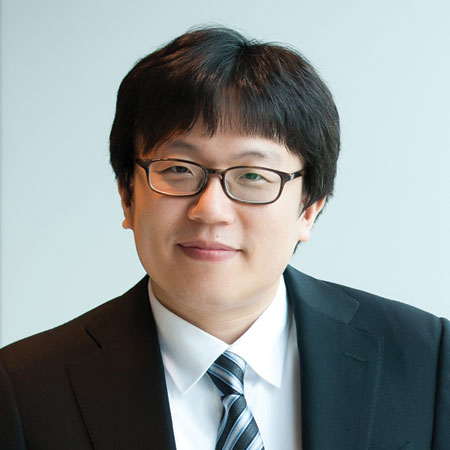Interview: ViroMed On Pricing, Manufacturing World’s First Broadly Used Gene Therapy
Executive Summary
The head of global business strategy at ViroMed, one of the gene therapy companies nearing the commercial stage in the US, talks exclusively to Scrip about the South Korean biotech’s strategies, including for pricing and manufacturing, which are emerging as key considerations for developers.
Despite ongoing debate over the sometimes staggeringly high cost of gene therapies, ViroMed Co. Ltd. does not appear too concerned about the likely pricing of its lead asset in this field, the non-viral therapy VM202.
While companies in the sector are considering various approaches, such as installment payments, to help facilitate market access to their pricey products, the South Korean biotech is looking at pricing the product at a more affordable level, especially given that it is targeting diseases with relatively large patient populations.
The firm is slated to announce later this year top-line results from the first Phase III study with VM202 in its most advanced indication, painful diabetic peripheral neuropathy (PDPN).

ViroMed executive director Jehee Suh.
“The latest gene therapies are announcing prices of more than a million dollars and this is becoming a social issue. Our therapy targets at least a one million [patient] population in the US alone, so we have to find the right price level that is appropriate for the target disease and the patient populations,” Jehee Suh, executive director of global business strategy at ViroMed, told Scrip in a recent exclusive interview in Seoul.
As a rising number of gene therapies undergo late-phase clinical trials, pricing and manufacturing these complex products is becoming an urgent issue for sponsors. Several developers such as bluebird bio Inc., Novartis AG and Sarepta Therapeutics Inc. are already proposing alternative payment models to address the cost issues. (Also see "The Gene Therapies Are Coming – And So Are New Ways To Pay For Them " - Scrip, 15 Jan, 2019.)
Kosdaq-listed ViroMed's flagship product, VM202 is a plasmid DNA-based therapeutic designed to simultaneously express two isoforms of HGF (hepatocyte growth factor), and has been developed for four indications with high unmet medical need: two cardiovascular disorders, coronary artery disease and peripheral artery disease; and two neurological conditions, amyotrophic lateral sclerosis (ALS; also known as Lou Gehrig’s disease) and PDPN.
Phase III Milestone In 2019
ViroMed is currently progressing in the US a Phase III clinical trial for diabetic foot ulcers as well as PDPN, along with a Phase II study for ALS. The PDPN program has nearly been completed, setting the stage for the top-line results this summer or early autumn.
“This will be our major milestone for this year. After the results are announced, we plan to discuss with the [US] FDA whether we will submit the BLA [biologic license application] right after, or proceed with a second Phase III trial before the BLA submission. Usually clinical trials for pain involve two sets of Phase III trials, but we discussed with the FDA to decide this after looking at the Phase III data, in particular the safety profile of the drug. In the meantime, we have already geared up for the second Phase III trial,” Suh explained.
Based on the Phase II results, the company expects a positive Phase III outcome. While VM202 has the potential to get disease-modifying status, given that data from monofilament tests suggested it might aid in recovery of sensory functions, whether the therapy is actually given this designation will not affect the FDA approval, in ViroMed's view. But the status would mean it is likely to be prescribed to more patients.
The company is also increasing the injection frequency as VM202 progresses through clinical trials. During the Phase II program, one injection cycle was used, but this increased to two cycles in the first Phase III trial and there are plans to administer three cycles in the second Phase III trial to further confirm safety and efficacy.
“We are trying to see if patients can be injected every three months as needed,” Suh said.
Profile Differentiation
ViroMed points out that VM202 has a somewhat different profile versus other gene therapies as it is a plasmid DNA-based therapeutic. When injected into the body, plasmids do not last long but make HGF protein, which too will disappear within a few weeks. As a result, the therapy has a good safety profile and can be repeatedly administered, via intramuscular injection along the calf line.
Although plasmid DNA approaches are known historically to have relatively weak efficacy, ViroMed has developed proprietary technology to improve the therapeutic effect of this type of gene therapy, and also believes it has found the right target indications for which VM202 is able to work well locally.
Given that pain is also subjective, it is also difficult to measure this for each patient, as the same objective intensity might be bearable for some but unbearable for others. Therefore, the company is trying to give the option to doctors and patients to administer the therapy as needed.
Pricing In 'Tens Of Thousands'
“In terms of pricing, we haven’t made much progress like the gene therapy companies that have already received approvals. We will finalize our strategy once we complete clinical trials and get the FDA’s approval. But we are much less concerned than the others. Basically, we are considering a pricing level of several tens of thousands of dollars. We are also studying how many injections will be included in the annual treatment,” Suh told Scrip.
Although ViroMed hasn’t come up with a detailed pricing strategy yet, it is considering a price range that can compare with first-generation antibody biologics for rheumatoid arthritis, such as Humira (adalimumab), as this is also a chronic disease and relevant to pain.
“VM202 is a very unique gene therapy. Most gene therapies are for the treatment of rare genetic diseases, caused usually by certain deficiencies or mutations in genes. Their patient populations are quite small. As the diseases are severe and lack alternative treatments, their prices are quite high,” the executive commented.
“But our concept is different. Of about 30 million diabetic patients in the US, we are targeting about 1-2 million patients that have refractory PDPN. This will actually become the world’s first gene therapy that is broadly used, not only for small populations," he observed.
PDPN is one of the most frequently observed forms of neuropathy, associated with 5% of all diabetes patients and characterized by sensory loss, dysesthesia and night-time pain.
Secure Production Through Genopis
Pricing and patient population considerations are also why ViroMed had to invest in securing options for production. "We needed a large-scale manufacturing option for mass production. The acquired [US] facility, which had been shut down for a while, will become fully operational this year. This can become our primary supply option, but there will also be other back ups,” Suh said.
In partnership with a private equity investment firm, ViroMed last year acquired the plasmid DNA manufacturing company Genopis Inc. in San Diego from Vical Inc. (Also see "ViroMed's Plasmid DNA Facility Buy Addresses Key Potential US Regulatory Hurdle" - Scrip, 23 Jul, 2018.)
The GMP-ready production facility has a 500-liter fermenter, cell culture lab and quality control test lab, as well as extra space for future expansion. It is likely to become the world’s first commercial production site for plasmid DNA, and is also being considered as a global contract manufacturing facility for gene therapies. In this case, ViroMed would become one of its main clients, with what it says would be a "world class" quality system.
The stable supply of vectors is emerging as a critical consideration for developers of gene therapies, as they move from smaller-scale trials to larger studies and then the need for mass production for commercialization. (Also see "Gene Therapy’s Next Big Challenge: Manufacturing " - Pink Sheet, 21 Jan, 2019.)
But given that there aren’t many plasmid DNA therapies undergoing pre-commercial development, while there are manufacturing facilities for R&D needs, there is a very limited number of sites capable of large-scale manufacture.
“We are considered as unrivaled in the plasmid DNA therapeutics space, as no other companies are known to be progressing Phase III clinical trials this far,” Suh declared.
Eyeing Global Development, Partners
With the progress of VM202 and considering its goal of becoming a global DNA therapeutic player in the coming years, ViroMed established a global business strategy division last year and brought in Suh - who has experience across various industries - to head the division and help devise commercialization and marketing strategies.
Previously, the executive has worked as a partner at global consultancy McKinsey & Company, as well as a brand manager at Novartis, and received an MBA from Wharton School of Business in the US.
“As VM202 is nearing the global commercialization stage, it is essential for us to understand global market trends and efficiently communicate with various channels, including the US market. To enable this, our global business division is closely coordinating with various other divisions,” he said.
Although the South Korean company is headquartered in Seoul, it is aiming to establish another headquarters in San Diego, given that most of its clinical development work and planned first commercialization is taking place in the US.
The company, which presented at this year’s JP Morgan Healthcare Conference in San Francisco in January, said it had felt a change in sentiment for VM202 and gene therapies in general as these move to market. Potential partners and investors showed strong interest during the meetings as the company nears commercialization, Suh said.
Its efforts may also be aided by favorable changes in the regulatory environment for advanced therapies in the US. Regulatory incentives have played an important role in gene therapy development both there and in Europe, where such products have the potential to benefit from specialized regulatory pathways established broadly for regenerative medicines. (Also see "Korean Gene Therapies On Horizon, But Slow Regulatory Changes A Drag" - Scrip, 23 Jan, 2019.)
Last year for instance, VM202 received Regenerative Medicine Advanced Therapy (RMAT) designation from the US FDA for the PDPN indication. “We have been developing our therapy for 20 years. It is fortunate that such changes are being made when our efforts are coming to fruition,” the executive director observed.
As the first top-line Phase III results come closer, ViroMed is now actively seeking a sales and distribution partner in the US, and also aims to enter the European and Japanese markets via alliances.
“We have gathered the data and will largely lead the regulatory approval process, but marketing and sales are not our main capabilities,” Suh noted. “Therefore, we are looking for a partner who has strong understanding, interest and passion in PDPN. It is important for our partner to have passion in providing the benefits of our therapy to patients.”
From the editors of PharmAsia News.
